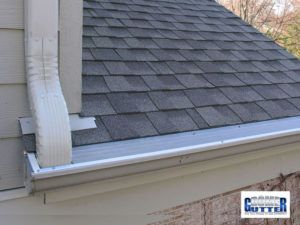Major Home Repairs: Savings Strategies and Finding the Right Contractor
November 22, 2018
A homeowner’s work is never done. No matter what you do, there’s always going to be something that needs updating or repairs. While it can be fun to channel your inner handyman, you sometimes need to call in the professionals. That’s when the numbers really start to add up. If you’re wondering how exactly you’re going to cover the cost of major home repairs, the following advice will help you save more, spend less, and hire the right people for the job so you don’t have to pay for it to be done twice.
Building a Home Maintenance and Repair Fund
If you’re planning on buying a home, starting a home maintenance and repair fund you can turn to when you need major home repairs can prevent you from having to go into debt should a home emergency occur. The national average cost of a major home repair or renovation is around $10,390, so having $10-$15K in your fund ensures you’ll be able to cover repairs small and large.
Saving $10K may seem like an impossible goal– that amount of money is certainly not chump-change– but your average household can easily save that much in a year with the right plan. Use this smart saver as an example. By cutting down on expenses like eating out, they were able to save hundreds of dollars each month. The more they got used to certain cutbacks, the easier it was for them to make even more budget adjustments. The savings added up month after month, and by December, they ended up saving more than $10K total.
To have the same savings success, use the following advice:
- Have a goal. In this case, you want to save somewhere between $10K and $15K for your home maintenance and repair fund.
- Know exactly how much you make, and consider picking up a side gig or extra shifts so you can contribute more to your savings fund.
- Go over your spending habits, and be real with yourself– what can you do without? Where can you make significant cutbacks that won’t hinder your quality of life? Being aware of how you spend your money in the first place gives you the power to make better financial decisions.
- Know when an investment is worth more in the long run. For instance, if you spend money having your gutters professionally cleaned every three months, those numbers add up over the years. A one-time investment in gutter guards from Gutter Dome keeps your home’s drainage system working throughout your 30-year warranty, preventing water damage and the need for annual rain gutter maintenance.
- Identify necessities versus luxuries, and start cutting back on the latter.
Tips for Finding a Reputable Contractor
When it comes to finding someone to complete major repairs on your home, it helps to know what kinds of red flags for which you should be keeping an eye out. If a contractor uses urgent language that makes your situation seem like an emergency, they are trying to emotionally manipulate you into a job. Look for someone who sees solutions, not problems. Always get a firm quote in writing– verbal quotes don’t mean anything when it’s time to settle the bill. Honest contractors also do not request payment up front. If someone is telling you they need funds before they start working, show them the door. Before a job starts, take photos of the area in which they are working in case they cause intentional damage in order to get more work. Having photos that show that there was no pre-existing damage catches them red-handed. Finally, always hire a contractor that has a quality guaranteed– especially if it’s a major repair. New installations should always come with an extended warranty for a homeowner’s peace of mind.
Major repairs are not cheap, but they are a part of home ownership. If you’re going to buy a property, you need to have a home maintenance and repair fund that you can dip into for necessary renovations. Try to keep $10K-$15K in your fund so you can cover jobs big and small. When finding a contractor for your repairs, keep an eye out for signs that they are not reputable. A good contractor sees solutions rather than problems, provides quotes in writing, never requests payment up front, and provides a warranty on their work.
Content provided by guest blogger Danny Knight who is passionate about sharing his experiences working on DIY projects. He is the owner of FixItDads.com, which shows off helpful DIY projects.















